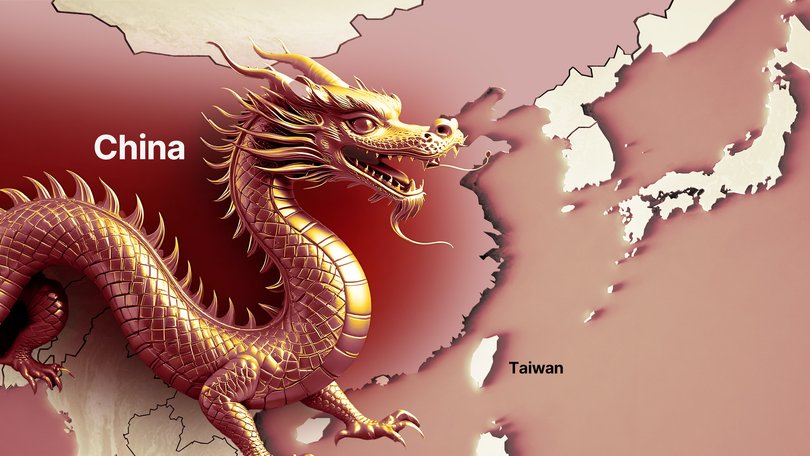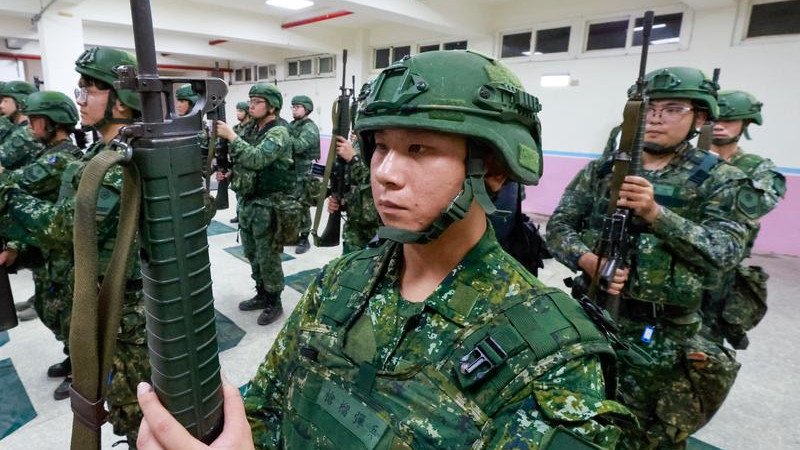AARON PATRICK: Should Australia join the US in a war against China to protect Taiwan?
AARON PATRICK: Experts are hopelessly split over what would be one of the most difficult decisions in Australian history.

Right now, Anthony Albanese is in Shanghai promoting Australian-Chinese trade.
On the other side of the world, in Washington, senior members of the Trump Administration prepare for war with China, a war they fear will be necessary to defend Taiwan from an invasion across the Taiwan Strait.
If the world’s first and second-ranked powers come into conflict — which some predict could be a little as two years away — the prime minister of Australia will have to make one of the most difficult decisions in the nation’s history: whether to join a war against its top trading partner.
Sign up to The Nightly's newsletters.
Get the first look at the digital newspaper, curated daily stories and breaking headlines delivered to your inbox.
By continuing you agree to our Terms and Privacy Policy.Experts who have spent their entire careers studying Australian foreign relations are hopelessly split.
Supporters of military intervention argue Australia would not have a choice — it would become involved in a war that would quickly spread beyond Taiwan to the South China Sea.
“If we have a crisis like this, Australia is likely to be targeted early,” says Ross Babbage, a former senior intelligence and defence official with links to the Trump Administration. “We’ll be taking losses because we haven’t prepared.”

Vital interests?
Opponents of participation in a big Asian war argue Australia has little to gain from sending men and women to fight, and a huge amount to lose.
“There are no vital interests at stake for Australia — none that would warrant us getting involved in a conflict that could be catastrophic to the extent if the exchange was nuclear,” says Sam Roggeveen, director of the international security program at the Lowy Institute, a foreign affairs think tank in Sydney.
“That’s very much possible.”
The debate isn’t entirely academic. The US government has pressured Australian and Japanese defence officials to clarify what military support they are prepared to provide Taiwan if it is attacked, the Financial Times and Wall Street Journal reported over the weekend.
The reports prompted Mr Albanese to state: “We support the status quo when it comes to Taiwan.”
In other words, Australia wants China not to invade. But under President Xi Jinping, China has engaged in what looks like preparation for war for several years. It has even created a mock version of the Taiwanese presidential offices, which Chinese soldiers regularly practice assaulting, according to Dr Babbage.
50 per cent chance in 5 years
One military affairs expert, Malcolm Davis of the Australian Strategic Policy Institute, has put the odds of a war at 50 per cent in the next five years.
Even if Taiwan is invaded and incorporated into China — the US has not committed to defending Taiwan although most experts assume it would — no one can agree whether it would be the start of a march through the rest of Asia by the People’s Republic.

Taiwan was part of China until 1949, and both states formally regard themselves as the one country, albeit ruled by separated governments. The historical connection helps explains why some experts see China’s reunification ambitions as more legitimate than Russia’s war to subjugate Ukraine.
“It is a unique case and has been for 75 years,” says James Laurenceson, the Director of the Australia-China Relations Institute at the University of Technology, Sydney.
“I don’t buy that Beijing could then coerce a whole bunch of significant capitals from Tokyo to Jakarta to Canberra into relinquishing their sovereignty.”
Air support
In a war, Australia would likely have two main roles, according to Dr Babbage. Australian submarines would attack Chinese ships crossing the strait to Taiwan and US forces would use Australia as a giant base to support Taiwan’s military.
The Royal Australian Air Force might participate in joint missions with the US, he said, including by providing airborne fuel tankers and planes that monitor and block enemy communications.
Australia’s relatively small army would probably not be sent, he said. After all, Taiwan can call on more than 1 million soldiers in an emergency.
If a war began, avoiding helping the US might be difficult. The two countries jointly operate the Pine Gap and North West Cape intelligence and communication bases. US Marines are based in Darwin for six months a year. Australian officers are seconded to leadership jobs across the US military.
If the US and China go to war, all would become legitimate targets.
Even if Australia stayed out of a war, there would be serious economic consequences. A global recession would be likely. Whether Australia could continue to supply iron ore, coal and natural gas to China by ship during a conflict is unclear.
Preventing war
The debate has important immediate consequences. There is an implicit threat the US might modify or cancel the AUKUS nuclear-submarine pact with Australia if the Albanese Government does not substantially increase defence spending.
The US, Japan and other Asian countries hope to prevent war by building more potent militaries. As the fourth-richest country in the Indo-Pacific, Australia can make a big contribution to the deterrence.
Usually when Mr Albanese is asked about defence spending, including on Sunday, he says the government is increasing the defence budget $57 billion over 10 years.
That does not satisfy foreign affairs hawks, who say more advanced equipment, including remotely controlled submarines, is needed straight away.
“I’ll believe it when I see it,” Dr Babbage says. “It’s a joke.”

